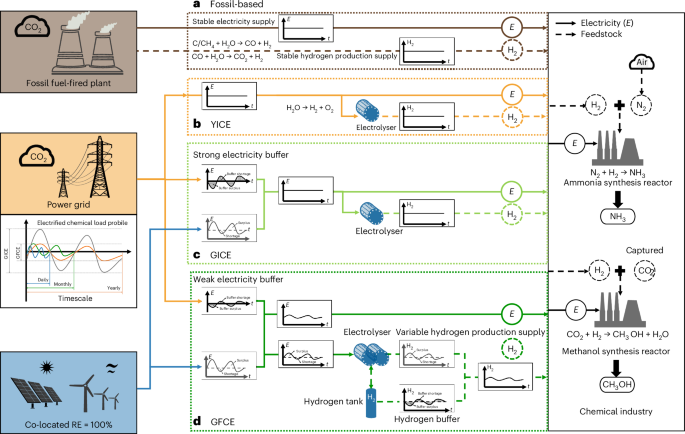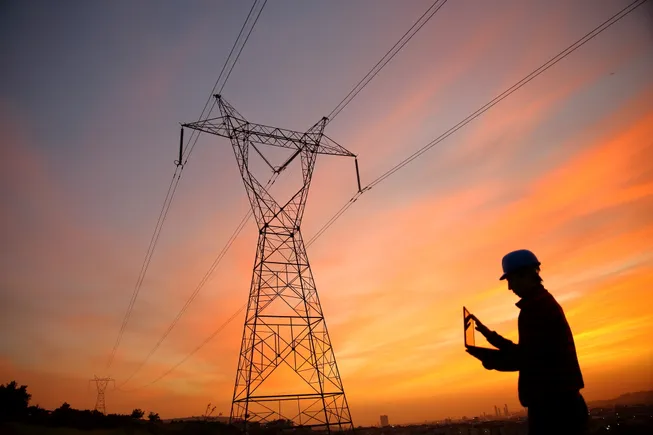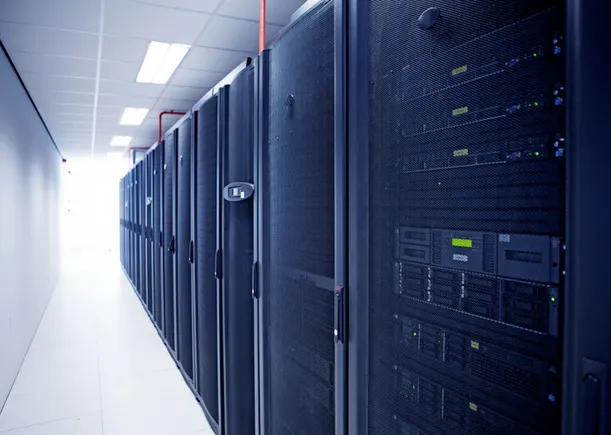Israeli defense exports hit record $14.7 billion, despite regional conflicts
A senior official said the sales reflect “more than anything else the growing global appreciation for Israeli technology’s proven capabilities.”
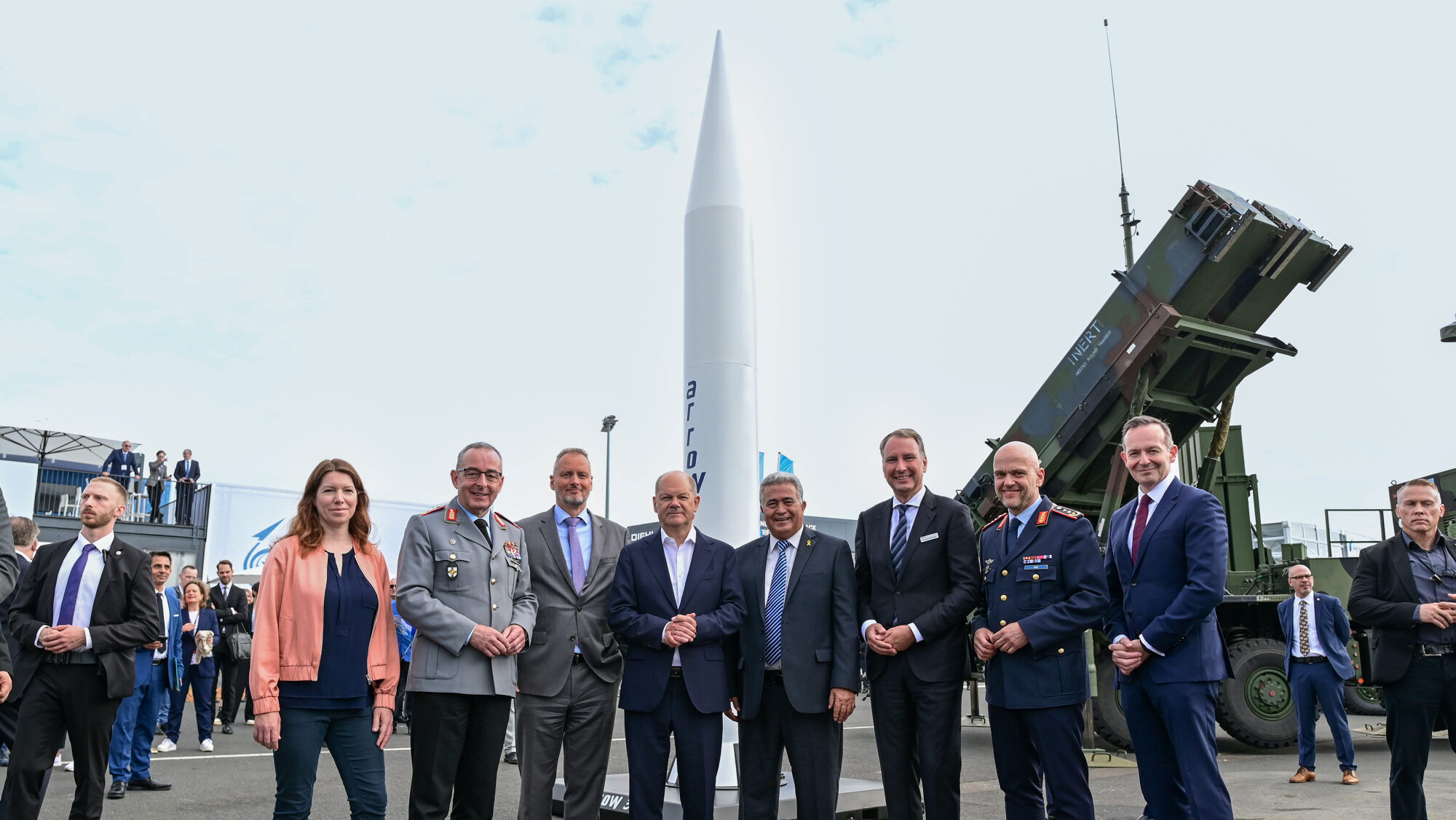

German Chancellor Olaf Scholz poses with senior Israel Aerospace Industrie (IAI) officials in front of an Arrow missile at ILA Berlin Air Show 2024 on June 5, 2024.
JERUSALEM — Israel’s defense exports set a new record in 2024, reaching $14.7 billion in value, Israel’s Ministry of Defense announced today.
This is the third year in a row that Israeli defense exports have reached a record level, a feat that comes as Israeli industry has also been supplying the nation’s own forces for combat on several fronts. The ministry said that 54 percent of the 2024 deals were with European countries.
“Israel has broken an all-time record in defense exports,” Israeli Defense Minister Israel Katz said, noting that it came during a “difficult and complex year of war.” He said that the “tremendous achievement is a direct result of the successes of the IDF and defense industries against Hamas in Gaza, Hezbollah in Lebanon, the Houthis in Yemen, the Ayatollah regime in Iran, and in additional arenas where we operate against Israel’s enemies.”
Israel Ministry of Defense Director General Maj. Gen. Amir Baram also said that the new record of exports “reflects more than anything else the growing global appreciation for Israeli technology’s proven capabilities.” Baram, who recently returned from his first trip to the US in his new position at the ministry, added that “Israeli systems have resonated throughout the Middle East this past year. More nations want to protect their citizens using Israeli defense equipment.”
The ministry added in its statement that “throughout the year, Israel’s various defense industries signed hundreds of significant defense contracts worldwide with the help and support of the IMOD, including over half of these deals (56.8%) being mega-deals, valued at least $100 million each.”
The ministry also noted that Israel’s defense industry has operated in an “emergency mode” during the war, mobilizing people to work around the clock. This has enabled Israel’s three large defense companies to keep up with orders abroad, while supplying the IDF.
In 2022 Israel announced record defense exports at just over $12.5 billion. That year drone sales, as well as missiles and air defense constituted almost 45 percent of the exports, and Europe accounted for around 29 percent of export customers. The next year, exports reached slightly more than $13 billion. In 2023, rocket, missile and air defense systems were 36 percent of exports and the Asia and Pacific region was around half of the total.
In 2024 rockets, missiles and air defense systems continued to grow, up to 48 percent of the total exports. Satellite and space systems also grew, the ministry said in its statement, saying they constituted 8 percent of the total.
Surprisingly, sales of UAVs have slumped to around 1 percent of all exports. This is a big shift from 2022 when they were a quarter of exports. Radar and EW continue to account for an average of around 10 percent of sales over the three-year period.
The Asia and Pacific region was 23 percent of sales in 2024, a drop from previous years. North American customers accounted for 9 percent.
The ministry noted that Abraham Accords countries, which include the UAE, Morocco and Bahrain, accounted for 12 percent of exports. This is a large amount considering the small number of countries involved. These countries were 4 percent of exports in 2023 and 24 percent in 2022. The Accords were signed in 2020. The number and types of deals with these countries or companies in them are not usually released by Israel’s ministry of Israel’s defense companies
Baram added that Israel “must continue this momentum in defense exports, enabling us to strengthen the IDF with more systems, develop the next generation of capabilities, and bolster Israel’s economy.” He said the country must expand its production base “to ensure continuous and sustained security readiness, even during challenging periods, while enabling greater export capacity.”













